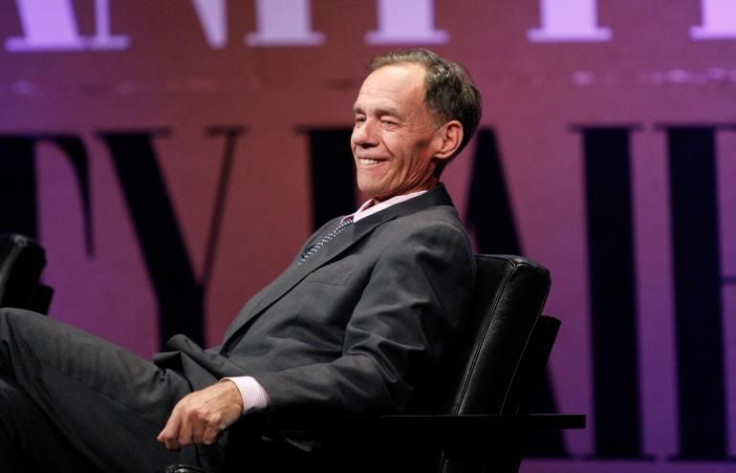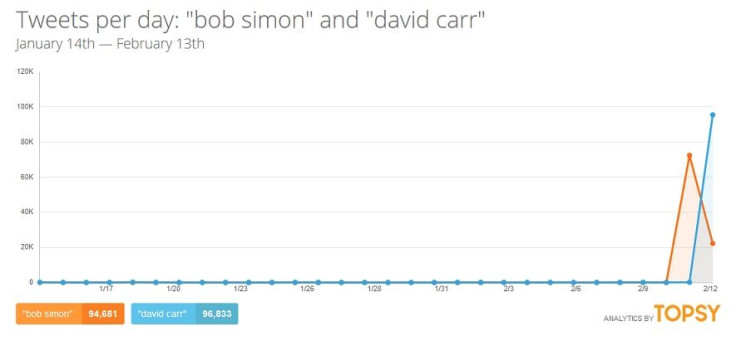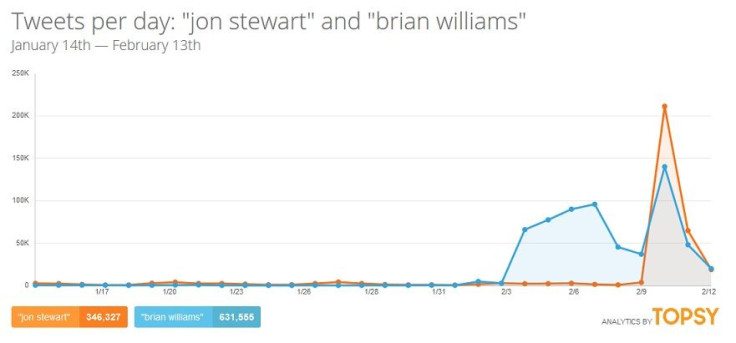Media’s Worst Week Ever: David Carr, Bob Simon, Jon Stewart Explode Twitter’s Filter Bubbles

On any given Tuesday, the surprise announcement that Jon Stewart will be leaving “The Daily Show” would have been the worst news of the week.
Not this week. Within a span of four days, fate delivered one cruel blow after another for people who work in media, cutting through the sub-sectors of digital, print, broadcast and cable news with indiscriminate malice. On the same day as Jon Stewart’s announcement, we received word that NBC’s Brian Williams would be suspended for six months amid an escalating scandal that threatens to permanently tarnish a three-decade career in broadcasting. The next night, longtime “60 Minutes” correspondent Bob Simon died senselessly in a car crash on Manhattan’s West Side Highway. And the night after that, David Carr, the esteemed New York Times media columnist, passed away at the age of 58 after collapsing in the Times newsroom.
While the rest of the world could have blissfully avoided one -- or even all -- of these stories, for journalists on Twitter, they were unavoidable. Within an hour of Carr’s death, his name became the top global Twitter trend, and as of Friday morning, his death generated more than 96,000 tweets, according to the analytics website Topsy. That’s even more than Simon’s death, which generated 94,681 tweets over two days.

The speed and force with which Carr’s name shot to the top of the trending sidebar says a lot about the demographics of Twitter’s active user base. According to the most recent data from Pew Research, 23 percent of online adults use the service. Among journalists, that number is close to 60 percent, according to a 2013 study from Oriella PR Network. For all its promise as a source of raw, real-time information, Twitter is, to some extent, a giant filter bubble, a distorted view of reality that amplifies certain types of stories over others.
Consider that in the same week as the above-mentioned misfortunes and tragedies we saw a two-day discussion around the trending hashtag #AdviceForYoungJournalists, sparked by a decidedly cynical essay -- published Monday on Fusion.net -- in which Felix Salmon told budding young journalists to steer clear of the profession. Who is Felix Salmon? If you’re on Twitter, you already know.

The filter bubble of Twitter is even more finely tuned among journalists, who tend to follow and engage with each other as if they were trapped inside an industrywide high school cafeteria. And Carr, who had amassed 469,000 followers -- almost unheard of for a journalist without a TV presence -- definitely sat at the cool table. He was that rare breed of rooted-in-print reporter, skeptical of new media but not afraid to embrace it and eventually master it.
To fellow Twitter journalists who worked with him, or considered him a mentor, or simply enjoyed his acerbic, incisive ruminations on the media business, Carr was easy to take for granted. It was just a given that he would weigh in with insight and introspection on any notable event that transpired in our industry. To suddenly face the realization on Thursday that those musings would stop without warning felt collectively traumatic. Timelines overflowed with expressions of shock, mourning and grief over the idea that one of the popular kids would not be coming to school the next day.
My feed is totally filled with @carr2n, which confirms that I have chosen precisely the right people to follow.
- Jeffrey Goldfarb (@jgfarb) February 13, 2015If we needed a reminder that Twitter is still the best tool for journalists, this week was it. These days, journalists with no presence on the social network open themselves up to suspicion or even downright ridicule, and maybe there’s a good reason for that. For the rest of us, we soldier on, tweeting about how we’re really looking forward to the weekend.
Christopher Zara is a senior writer who covers media and culture. News tips? Email me here. Follow me on Twitter @christopherzara.
© Copyright IBTimes 2024. All rights reserved.






















